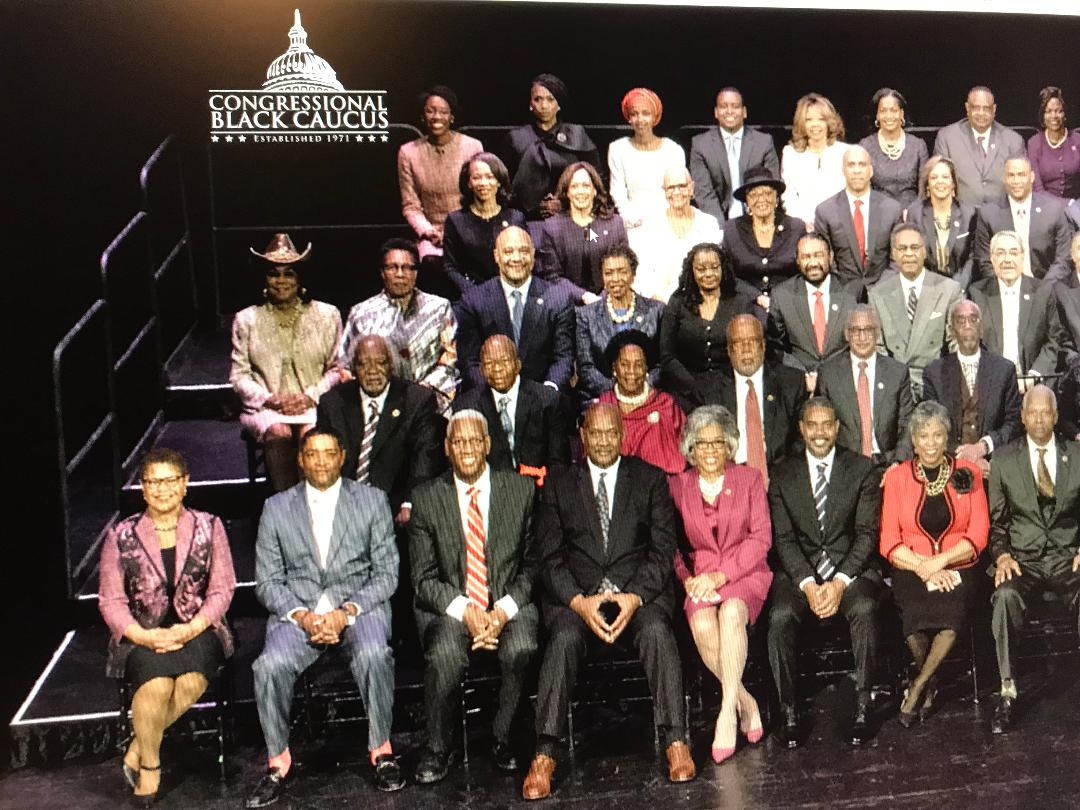[Census 2020]
Congressional Chairwoman Karen Bass: “During the last census count in 2010, African Americans were undercounted by over 800,000. That is totally unacceptable, and we must close the gap and ensure higher Black participation in the 2020 census so that our communities do not miss out on the federal resources we need the most. The Trump Administration has made a number of policy statements and changes that many of us in the Black Caucus find troubling.”
Photo: CBC Website
Congressional Black Caucus is sounding the alarm about the need to get an accurate count of Black America in the 2020 Census.
The Congressional Black Caucus’ 2020 Census Task Force met with Census Director Steven Dillingham and pressed agency leaders about their plans to adequately count Black communities during next year’s census.
In the meeting, held last week, several Black Caucus members, including CBC Chair Karen Bass and Task Force Chair Congressman Steven Horsford, questioned census officials on a broad range of topics related to the census, including assessing if adequate resources are being deployed to reach African American communities, which stand to lose billions of dollars in funding if they are undercounted in the 2020 census.
Data gathered by the census is used to determine how many congressional seats and electoral college votes each state receives, as well as the drawing of federal, state, and local government legislative boundaries. Furthermore, this data is also used to direct over $800 billion annually in federal dollars to states and local communities that impact health care services, housing, schools, businesses, and economic development plans among other priorities. An undercount of the African American community would mean less funding each year for a decade, creating greater disparities between Black and white communities.
“During the last census count in 2010, African Americans were undercounted by over 800,000. That is totally unacceptable, and we must close the gap and ensure higher Black participation in the 2020 census so that our communities do not miss out on the federal resources we need the most,” said CBC Chairwoman Bass. “The Trump Administration has made a number of policy statements and changes that many of us in the Black Caucus find troubling. Our caucus is committed to ensuring proper oversight of this Administration, so that African Americans understand what’s at stake and why being counted is critically important to move Black America forward.”
“This Administration has taken action specifically coordinated to discourage and frighten people away from participating in the 2020 census. Addressing our concerns with Director Dillingham is an opportunity to stand up for our constituents and historically undercounted communities,” Congressman Horsford said. “Every decade the U.S. Constitution requires a Census count of every resident in every household, and an accurate count is critical to the foundation of our democracy. The Trump Administration thinks it can dissuade the Black community and other minority communities from participating in the census, denying our constituents access to representation in Congress and federal aid programs. We will not let that happen, and confirming that Director Dillingham and his bureau are prepared for their task is a key step in ensuring an accurate Census count next year.”
Through its work, the task force will produce two reports. The first will occur before the census assessing the Trump Administration’s preparedness for 2020. At the end of this census, the task force will produce a second report analyzing proposals that should be enacted before the 2030 census.
Additionally, the task force will work to:
* Identify hard to count areas within congressional districts with large African American populations of 5% or more.
* Monthly task force meetings/hearings to gain additional insight into current census preparedness.
* Monthly task force site visits to Districts that are at risk of being undercounted to engage the local communities and collect input.
* Establish a coalition of national, state, and local partners and relevant stakeholders to engage in a public campaign to educate the public about the census and the importance of counting every resident.
* Create a public relations and social media campaign to raise the awareness, challenges, and opportunities associated with the census count.






